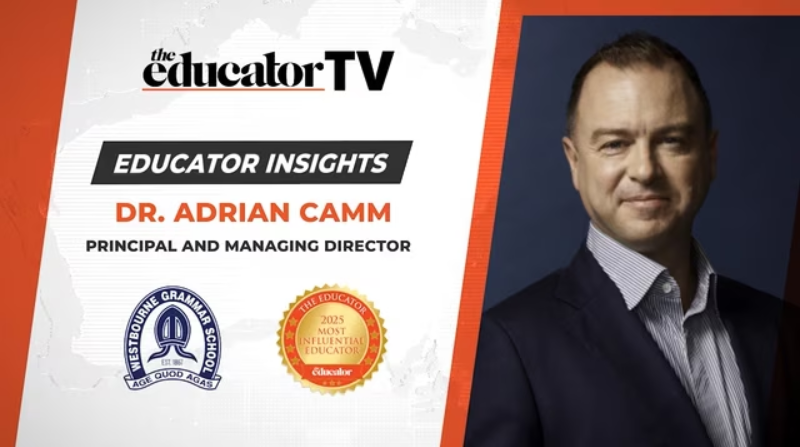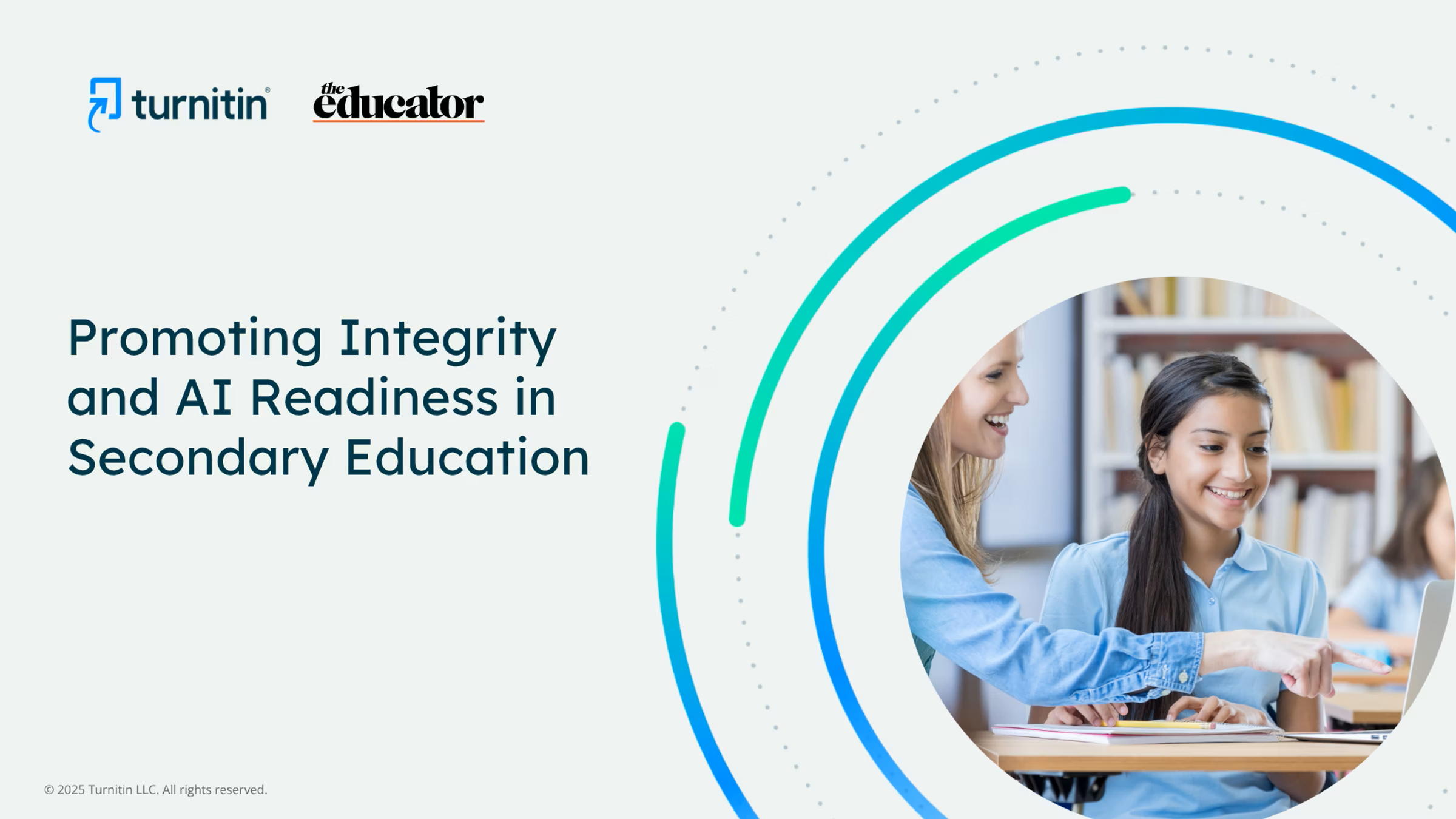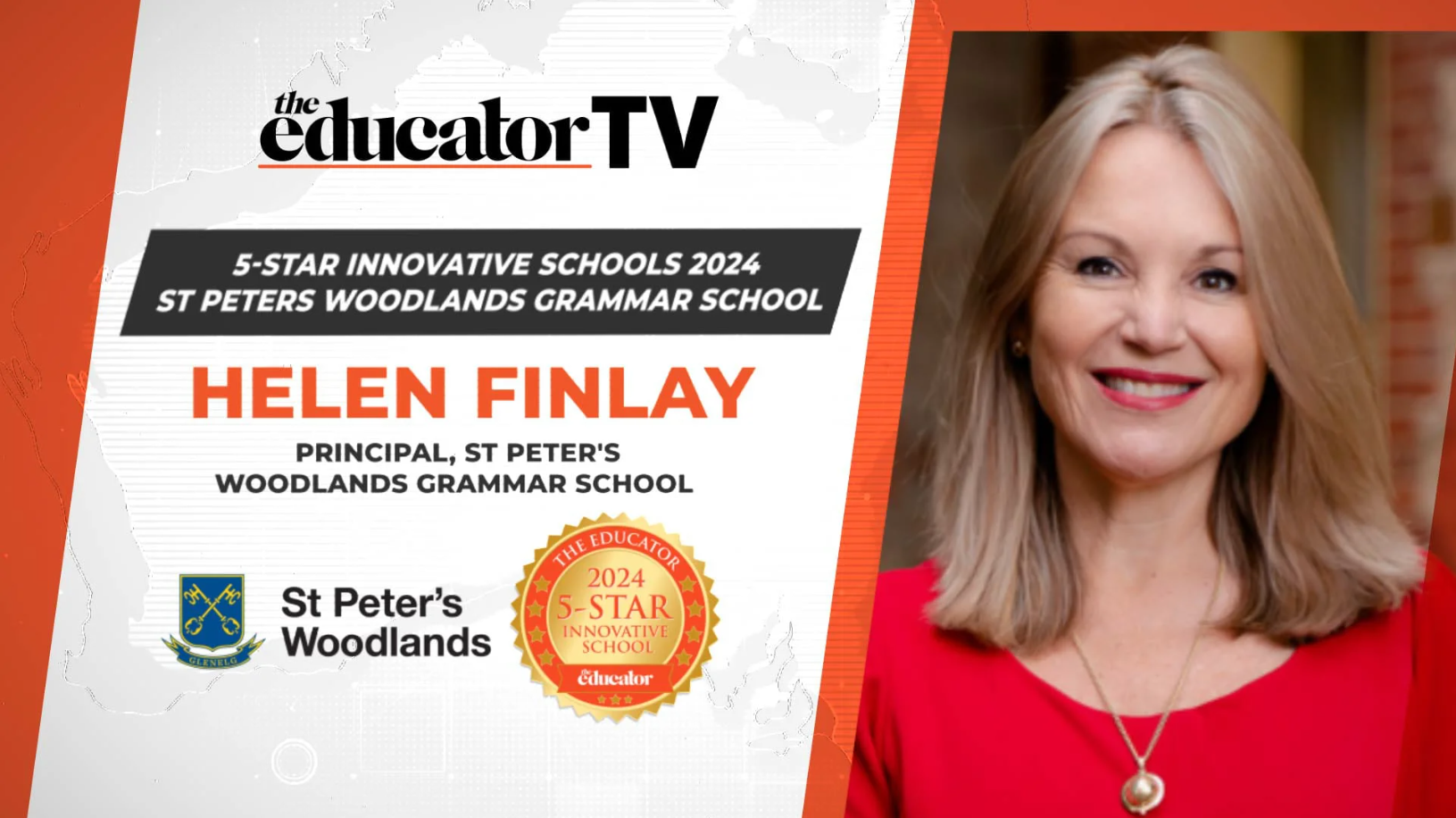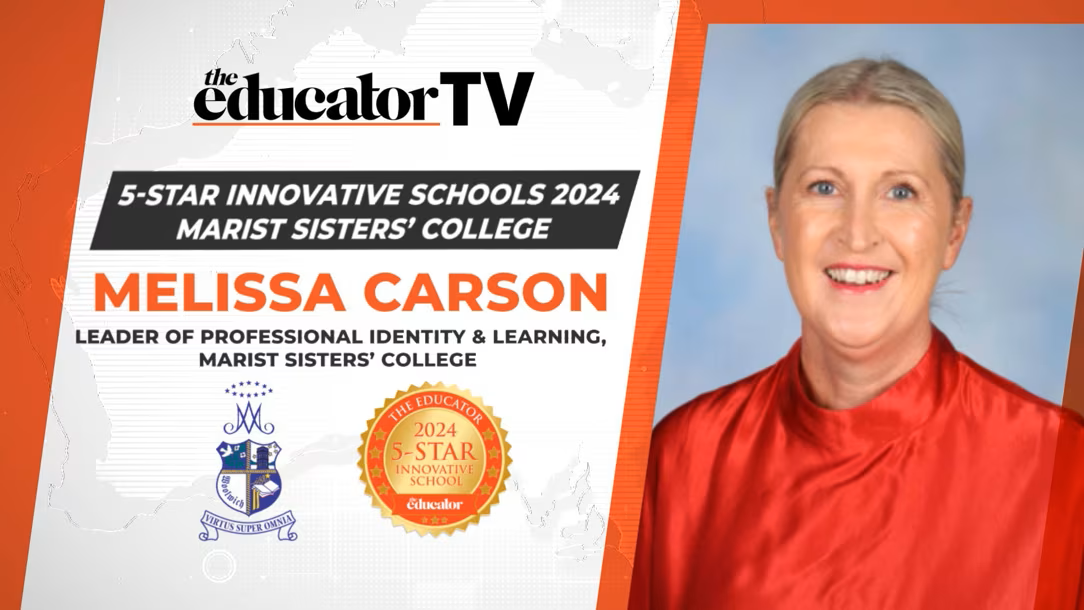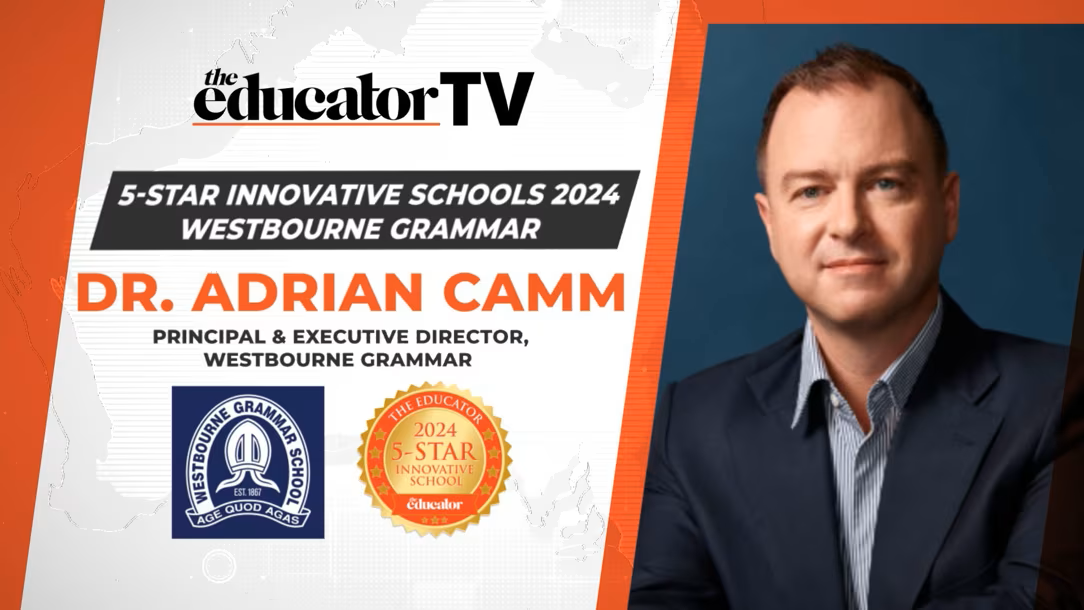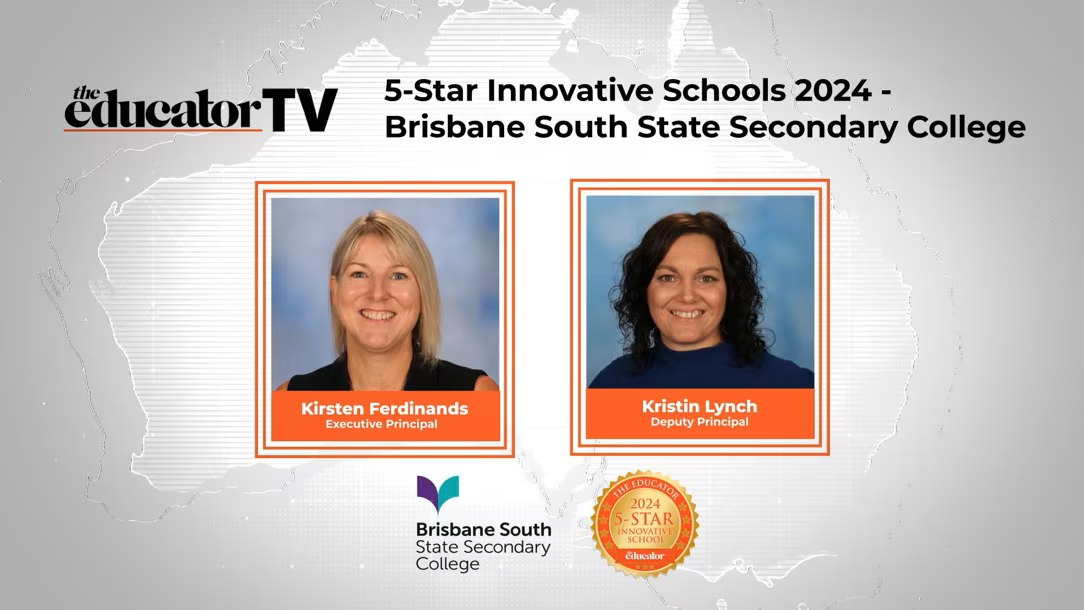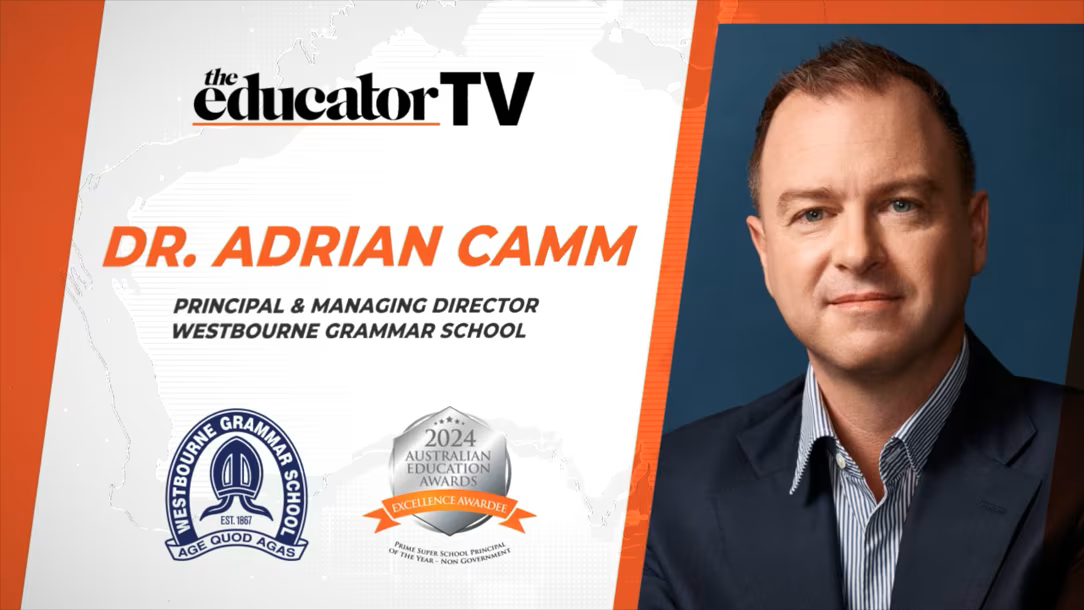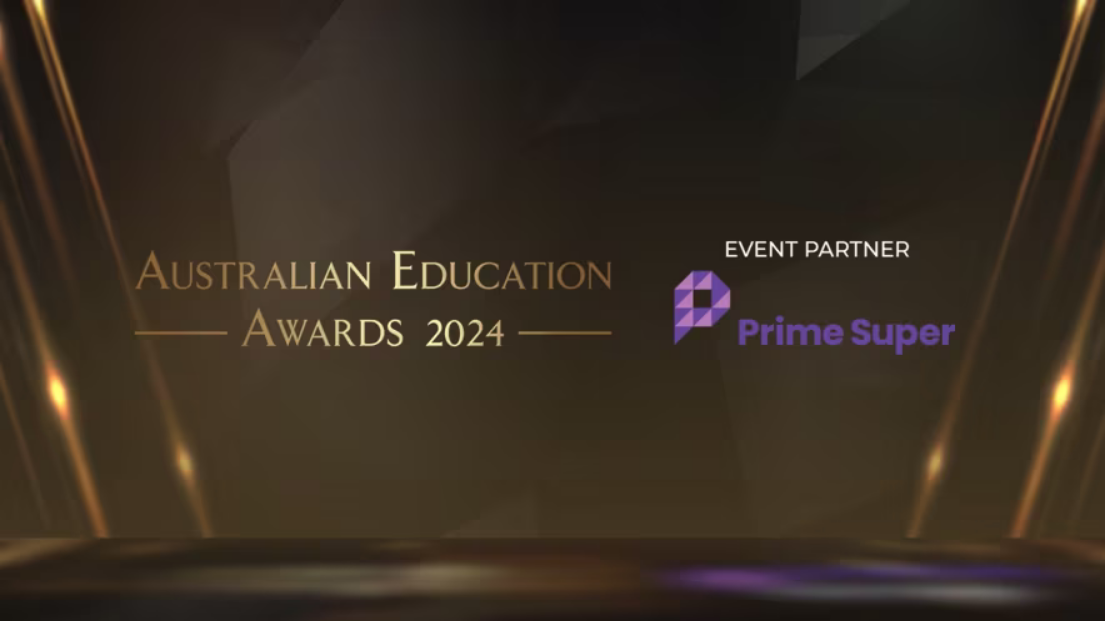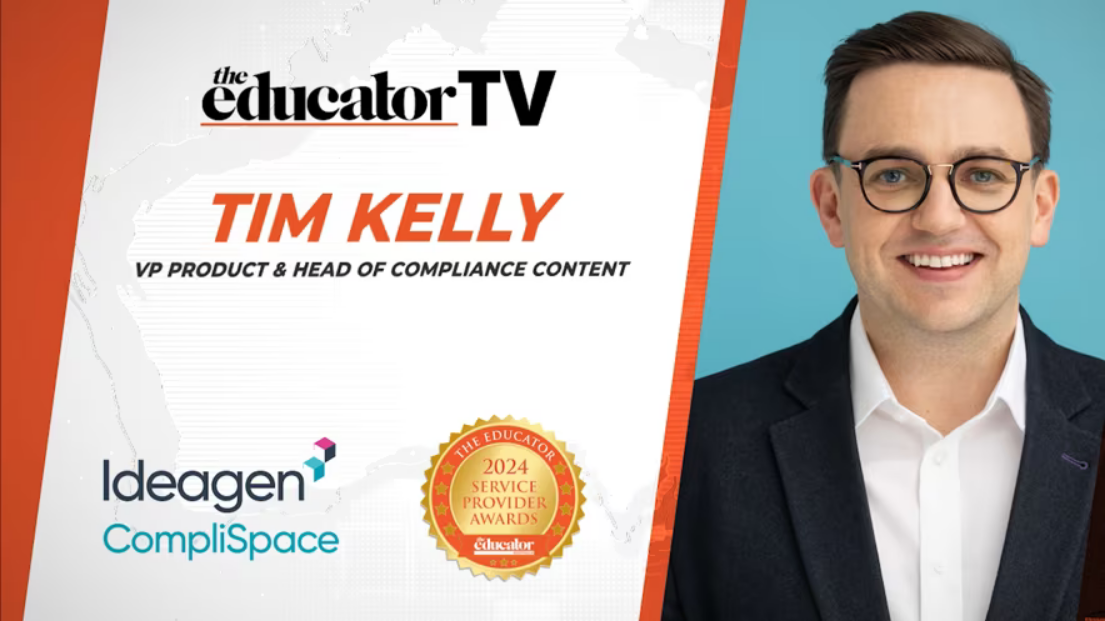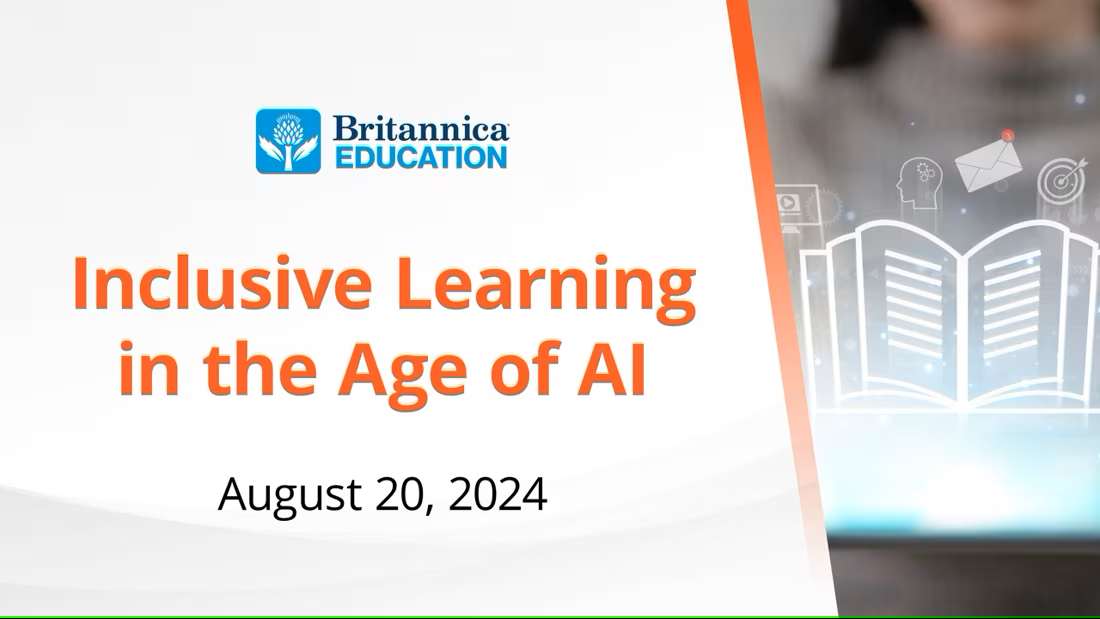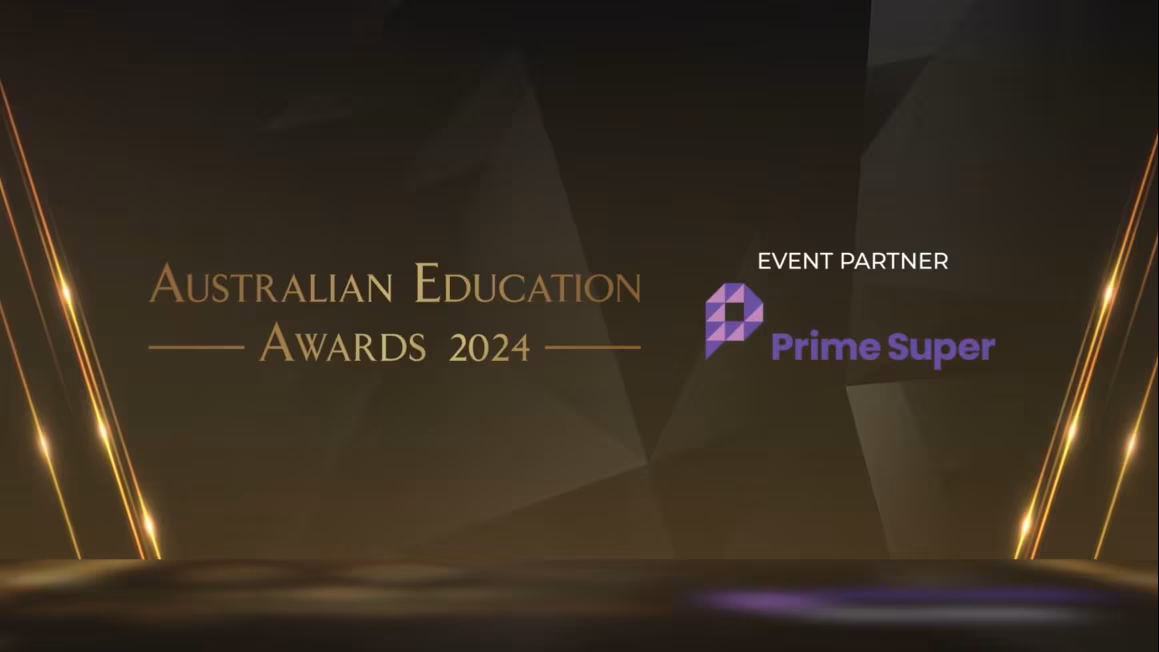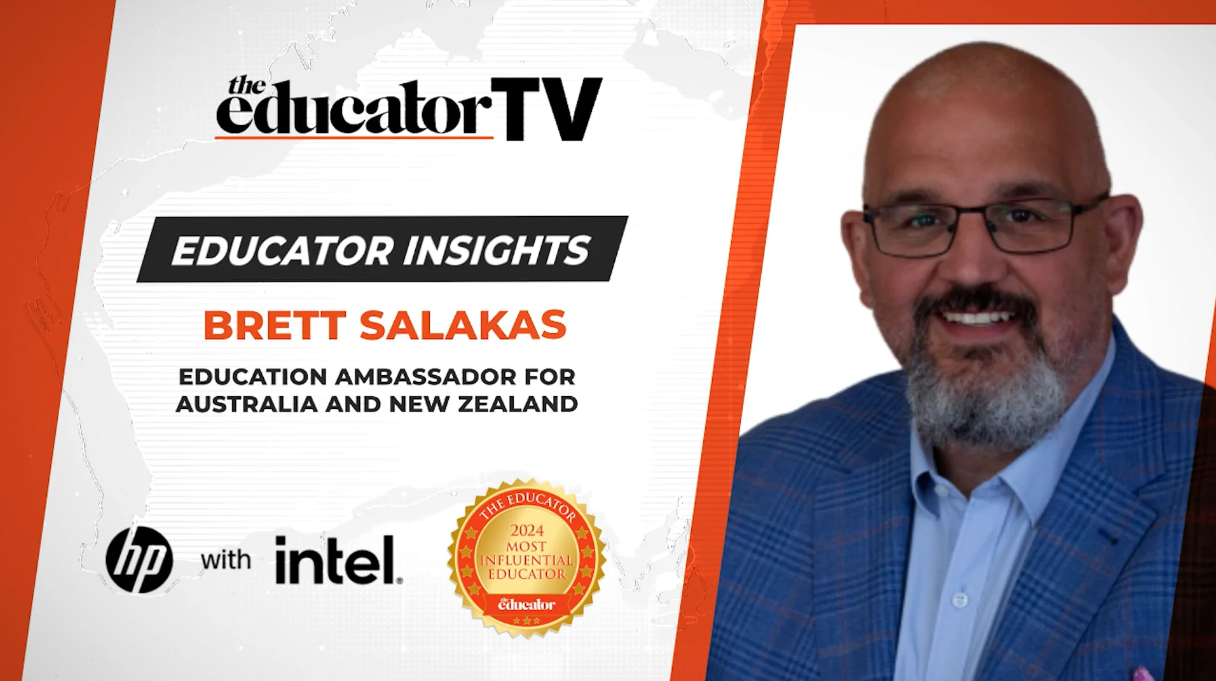Leading with compassion in challenging times
Highlighting the importance of resilience and community, Gary O'Brien reveals his strategies for fostering educational excellence, emphasising the role of compassionate leadership in creating impactful learning environments.
To view full transcript, please click here
Kylie Speer [00:00:08] Hello and welcome to The Educator TV I'm Kylie Speer. Thank you for joining us for the latest installment of Educator Insights our inspirational education leadership series. I'm joined today by Gary O'Brien, Principal at Cannon Hill Anglican College. Gary commenced as the college's fifth Principal in 2019. And has served the college for more than 24 years in a variety of roles, including as a mathematics teacher and Deputy Principal. Gary also holds the highest number of highly accomplished lead teacher certifications among all schools in Queensland. Welcome to you, Gary. It's so great to have you on the show.
Gary O'Brien [00:00:55] Thanks, Kylie. It's great to be here.
Kylie Speer [00:00:58] Can you tell us a little more about Cannon Hill Anglican College, the education programs on offer, and how many students the school educates?
Gary O'Brien [00:01:09] Certainly Cannon Hill Anglican College or CHAC as we are affectionately known, is in its 35th year. So we're positioned nine kilometers from the center of Brisbane, where a P to 12 school where we have 375 students in our 2 stream primary school and the rest are in our secondary school. In terms of our curriculum offerings, we try to be or we aspire to be extremely innovative and creative. We certainly look to give students responsibility for their learning. And that starts early on in primary school with things that happen inside classes. But as they move through the secondary school, they get more options of choosing electives up to year nine, where our students choose five semester electives, and seven electives. When they reach year seven, we believe that this makes them responsible for their learning, they get to choose the sorts of topics that they're interested in. We do that by starting from scratch every year. So the subjects that have run all the electives that run are driven by student choice not having to select from a given list. This is a winner on many points, particularly that it means that staff are very motivated to have engaging interesting, relevant units on offer so that students are keen to take them. The last five years since I've been principal, I've had a real focus on enterprise and entrepreneurial education. So we've implemented programs from grade five to 10, where whole cohorts undergo a sequential program that develops a number of those soft skills of teamwork, collaboration, critical thinking, creativity, problem solving, and it gets progressively harder for them, I guess, as they go through. And what we're seeing is students who are coming out, really well rounded and very capable of working in those circumstances. We also have a huge extracurricular program on offer. So we have sporting programs, performance music, debating are big here, social justice, and environment are big components of what we do. And we're very keen on a number of competitions like public speaking DaVinci decathlon and optimize where our students perform extremely highly. And indeed, we've been the highest performing school in a number of those areas for a number of years now.
Kylie Speer [00:03:24] Gary, in your role and career as principal, what are you most passionate about?
Gary O'Brien [00:03:31] I don't think I'm too different to most of my peers in that I'm really about creating an environment where students can thrive where they can become the best version of themselves, that's possible. And I think it's that day where you see the light go on for a particular student, or when they come back five to 10 years after they've left and apologize for the bad behavior that they conveyed while they were in your class, but also to show how thankful they are for what they learned along the way. And it's often really exciting to see the pathways that they've gone on knowing where they started from. You know, I think you do that by creating a school that is really a safe environment. First up, but also very inclusive, very much there to support students and help them to become the best that they can possibly be.
Kylie Speer [00:04:20] There is a lot of change happening right now throughout the Australian education landscape. What changes are you most affected by and how you're approaching their adoption?
Gary O'Brien [00:04:32] Gosh, we're gonna be here for a very long time today. I think there is a huge amount of change. You know, we are noticing it in our staffing. So certainly staffing as educators age and reach retirement and we've got a very well established long serving staff here. So looking at staff and how we can best look after them. I think the expectations and demands on teachers has done nothing but increase it And, you know, what we're trying to do here is find ways to make some of the processes and procedures easier for them. And certainly technology can help us with that. But also find ways to protect some of their time so they can get all the jobs done that they need to, and even try to provide a little bit of flexibility in a life that's governed by bells, that ring at very regular intervals. can keep going there, I think wellbeing for both staff and students is a is a major one. And I think, you know, we're always looking out for how we can best support our students, but just as importantly, how can we best support our staff, as they face many of those challenges that I think COVID has been one of those things that's changed the way people think about work, and about what they want to do at work. And I think that's been a real challenge for us. Technology and other one, whether it was the accelerated move to online learning that occurred when we went into lockdown, and we were really lucky here in Queensland, I have many friends in Victoria and I just have such admiration for the way the southern states dealt with really extended periods of time, we had short periods of time. But, you know, we went and on into online learning, and we did that very effectively. But I think technology is changing at such a rapid rate that it's really hard to keep up with. So looking at the tools that we can implement this year. And I know we'll probably talk about this a little bit later. You know, the impact of AI and how we best use that is certainly one that on our agenda. And lined up with all of that is just the curriculum that we offer in the way we go about assessing that I think many of the ways that we've done it in the past are no longer the ways that we can do it in the future. And so we need to really have a good think about what is it that we want to assess? How do we best actually assist that and I think that could provide some really good ways forward for us as educators.
Kylie Speer [00:06:55] Gary, as you've mentioned, post pandemic health and wellbeing practices have thankfully, never been as top of mind as they are right now. How does cannon Hill Anglican college address this area with your students?
Gary O'Brien [00:07:09] We have a really strong pastoral program that goes way back to where the school started 35 years ago, which was very much as a school for students who were dropping out of school or being, you know, exited from school. So we started off with very much a pastoral focus. And we've certainly attempted to keep that over our 35 years, we're very proactive at looking at what our students needs. And we certainly listen to their voices on that, as well. I think listening to student voice is a really important element in looking after their well being. So we look for programs, but we also look for people. So we have a pastoral team that, you know, starts at the homeroom level in the classroom level, but extends through our heads of house program, our directors, we have two college psychologists and a number of people with counseling qualifications. And we're I guess, always considering how do we do this better? What's missing from our program? What do we need to take out? What do we need to put in? Similarly for teachers, I think that's become a bigger issue. And if anybody out there has got the answer, I'd love to hear it. We certainly try really hard to do to do things to help our staff. But I think that's something that we're always going to be looking at how can we support them in what is a really challenging career and a really challenging job?
Kylie Speer [00:08:27] Absolutely. And let's touch on the complex subject of AI, which is clearly here to stay. What are your thoughts on how to best work with this technology going forward?
Gary O'Brien [00:08:39] I think I think the simple answer is we need to embrace that it's not possible to bury our heads in the sand and think that it's not going to impact the way that we do things. As a mathematician, I went through the, you know, the terrible changes that were going to occur when we move to calculators that could do all sorts of really powerful things. When we first started using laptops and the internet, and I think AI is the next in that I think there are some really big questions in that. And that is how to ethically use it. You know, the student who uses it simply to create an answer to my whole assignment and submit it is not going to be any better off. You know, it's not so good that it produces the quality of response that you would want. And it never sounds like the students. So from that perspective, I don't think it's ever going to replace doing the assignment. But I do think there is the capacity and in fact, the need for us to teach students how to use that sort of technology ethically and effectively. We already know that in the business world it is being used to do important work. And I think it's those skills of how do you frame the questions? How do you use the information that you get out of the AI to then take it to the next level? And I think there's an awful lot of good things that can come out of it. But I also think that if we're going to do that, there's going to need to be a lot of investment in training of teachers to do that. because it is really a highly skilled job. And certainly it's good to see that the you know, the federal government is looking at putting in a framework for the ethical use of AI that filled me with a bit of at least confidence that we're headed in the right direction I do I do get worried by schools that are banning it and saying, Well, no, you can't use it. We'll know, even if we block it at school that kids can access it at home.
Kylie Speer [00:10:24] That's such sage advice, Gary, How can teachers and principals be better supported by relevant stakeholders to ensure you're adequately equipped to do your job?
Gary O'Brien [00:10:36] We know and the research tells us that teachers are the greatest impact on a student and their learning. And I'll hop back to another COVID story, we were lucky we were only locked down for about six weeks. But the sense of anticipation and excitement that our students displayed when they came back to school, but was amazing, they, they missed the connection, they missed the relationships. And so any way that we can forge opportunities for our staff to spend more time on those relationships and direct links with our students, and less time on the administrative side of the job, I think is a really key, you know, we're reviewing a lot of our processes to see can we streamline and can we use technology more effectively to get some of these tasks done, so that we can allow our teachers to do what they actually do best, which is connect to students, we often talk about the three R's here at check. And they are relationships, relationships, relationships, and you know that that's key to what we do. So anything that we can do for our current staff in that space is certainly what we're trying. Similarly, I think there's a real need to raise the whole profile of teachers and educators in general, we need to encourage the next generation through we know what the statistics say about the average age of teachers and the number who are heading towards that retirement stage of life. We need to have better, better ways of attracting people. And once we've got people into education, supporting them, whether it be through coaching and mentoring in their early years opportunities for them to get together and receive the support that they need. But I think really working on our teachers is where we need to be. And that obviously comes back to the resourcing you know, facilities and otherwise, that we provide for them, and the attractiveness of the role.
Kylie Speer [00:12:22] And finally, what's your number one piece of advice right now to affect positive change in education?
Gary O'Brien [00:12:30] Don't fear change, embrace it, we know everything that's going on. We know everything that's changing from different technologies, to ways of teaching to ways of assessing to just the ways of doing things. And I think often when we've done something a particular way, for a long time, it's hard to change. And it's hard to, I guess, embrace that change. But to me, being open to change, embracing it and running with it is probably the best advice. And I think what often happens is once you go into it with a and I'll use the term positive mindset, if you go in with a positive mindset, you'll often find that the benefits are actually outweigh any of the stresses that occurred along the way. And you do end up becoming a better teacher than you were. And I think that's what all teachers want to do. They want to do their job to the best of their ability. They want their students have the best possible chances of success. And yeah, so embracing, embracing the change rather than fearing it, I think is my advice.
Kylie Speer [00:13:26] Well, thank you so much. Once again, for your time today, Gary, it was lovely speaking with you.
Gary O'Brien [00:13:31] And you too, Kylie. It wasn't anywhere near as traumatic as I thought it would be.
Kylie Speer [00:13:38] I'm very happy to hear that. And thank you, of course to our viewers for watching the latest episode of Educator Insights. We look forward to seeing you again soon.



